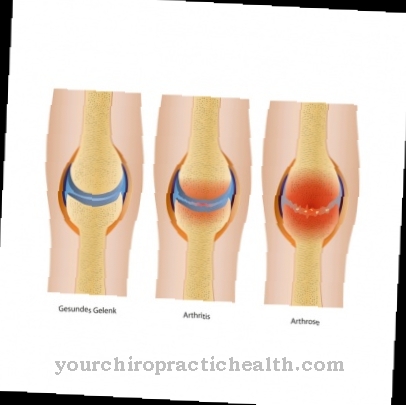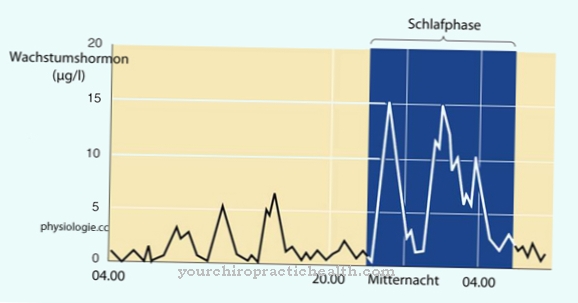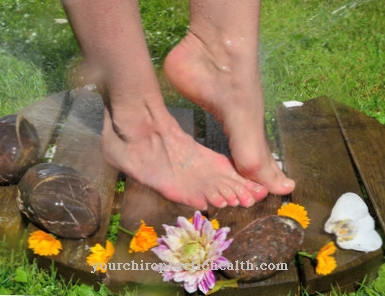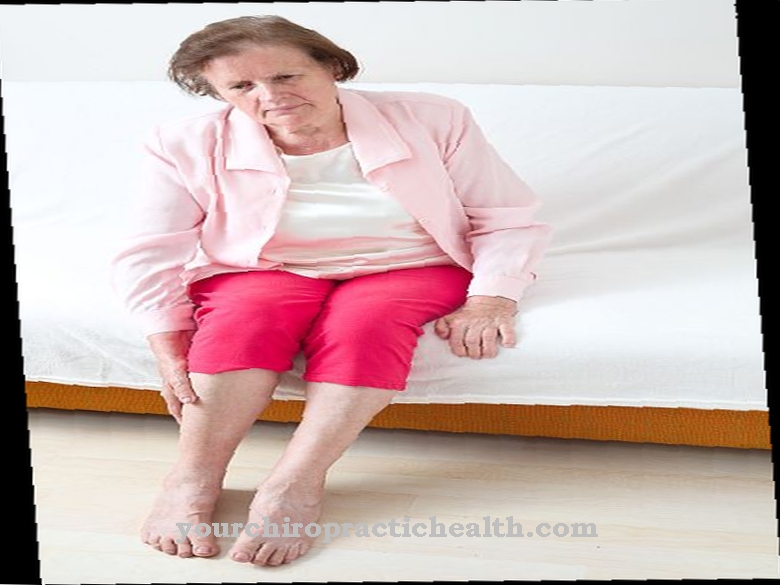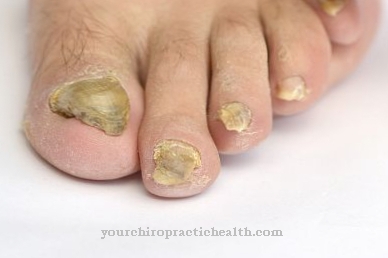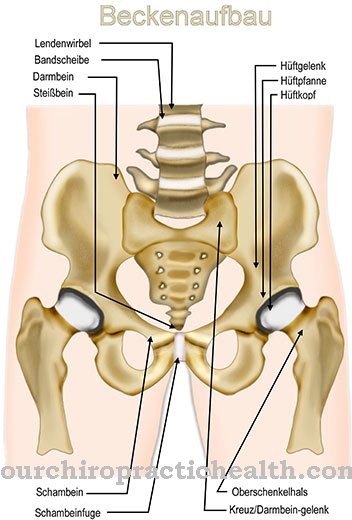Some people may be shocked to find out at the age of sixty that they have been a sleepyhead for twenty years of their lives, and they may have the idea that they could have done a lot more if they hadn't slept so much. This thought would be a mistake, because without this third sleep life he would not have been able to enjoy the two thirds waking life. Sleep is a naturally necessary active process that protects our body from exhaustion.
Healthy sleep is important - sleep types
The healthy person sleeps an average of eight hours a day, the plump baby far more (up to eighteen hours) and the old man less. There are probably some sleep artists who pride themselves on getting by on six or even four hours of sleep, although they sometimes forget to include the afternoon nap. Incidentally, we usually only find these sleep artists among men, while many women are honest enough to admit that they like to sleep a lot if they only have the time.
It should be well known that there are different types of sleep: for example, those who go to bed early, quickly sink into the deepest sleep - "sleep before midnight is the healthiest," says the vernacular - and slumber a little more superficially towards morning. Or others who only become livelier and fresher in the evening, who therefore go to rest late, but now have trouble falling asleep and only reach their deep sleep towards morning. It is certainly wrong and unjust to judge early and late sleepers in a morally critical way, to regard type I as the good ones and type II as the idlers.
In addition to physical circumstances, social milieu, job and lifestyle can play a decisive role. The farmer is prompted by his work program and forced to go to sleep with the chickens in order to be able to make full use of the light of day for his work. The intellectual artist of the big city will prefer the quiet of the evening and the quiet of the night for his possibly creative occupation.
Overview of sleep disorders
The depth of sleep is decisive for the continuous recovery of the organism. So you could say that the amount of sleep is equal to the depth of sleep times the duration of sleep, so that the quick-deep sleeper is best off. Those who sleep well get more out of life. This is best confirmed by those who suffer from insomnia; experience first-hand how painful and grueling a long-lasting irregularity in a restful night's sleep can be. Those who lose their sleep are sleepless.
Of course, this cannot be a strolling night like everyone experiences one or the other time in their calendar. It is also not about working day and night occasionally, for example during exam times, because sleep gaps are filled up quickly and hardly anyone will find it necessary to make up for this deficit by visiting a doctor.
But if an average normal sleeper sleeps badly for a few weeks for no reason and against his will and begins to suffer unrecoverably from his riddled nights, then he should, then he must seek medical advice. The sleep disorders can be very different: falling asleep can be difficult; the affected person tosses restlessly in bed, the morning sun is already shimmering through the window when he finally sleeps; after a short time the alarm clock rings and he has to get up dead tired.
Or waking up too early; after a relatively good start into the realm of dreams, you wake up much earlier than the alarm clock tells you to, without being able to fall asleep again, or sleep is superficial, is interrupted several times by the smallest noise, the crack of furniture, the bark of one distant dog, chopped up in fifteen minutes, so that this half-sleeper finds the morning almost a relief, although he gets out of bed just as tired as he lay down in it. Hardly any further words are needed about the fact that such tormented sleep can impair the joy of life, reduce the workforce and increase displeasure to the point of irritability.
You can therefore divide the sleep disorders into various sub-forms and assess them in more detail. In medical terms, these are:
1. the organic sleep disorders,
2. endogenous sleep disorders,
3. psychogenic sleep disorders and
4. the peristatic sleep disorders
What is meant by this? The first includes all sleep disorders that are the expression of an organic disease. They can occur as an outpost symptom or as a concomitant symptom of metabolic diseases, for example diabetes, of vascular diseases, for example atherosclerosis, of chronic poisoning such as alcohol abuse, of nervous diseases and others. In such cases it is of course not enough to treat the sleep disorder in isolation, which can also consist of an increased need for sleep; it must of course be included in the therapy of the underlying disease.
Sleep disorders in depression
Endogenous sleep disorders are perhaps the most difficult to understand for the non-medical practitioner. There are mental illnesses which, due to a lack of better knowledge, have been described as endogenous, that is, as arising from within. In our context, the endogenous depression deserves to be mentioned, a mental ailment that seems to break into people without motivation.
The patient feels sadly upset, makes unfounded self-reproaches, finds nothing more enjoyable, has fear of the future and life-negating thoughts. He loses appetite, his weight curve drops, he is unable to work. Most of all, he complains of poor sleep. It can even be said that there is no such thing as endogenous depression without a sleep disorder or, conversely, that the doctor should think of depression for every persistent insomnia. Here, too, the underlying disease must be recognized and treated, which is best done in a specialist clinic.
Mental sleep disorders
The psychogenic, i.e. purely mentally conditioned, sleep disturbances coincide with those which one likes to summarize as nervousness. They are undoubtedly the most common and are fondly viewed as the disease of our hasty times. Everyone has often found out for themselves that the excitement of the day creeps into sleep and can rob people of their night's sleep: occupational conflicts, existential fears, remorse, sexual dissonances fly past tired eyes.
Speeches are given, letters written, missed punchlines found, previously unsaid arguments buzz through the brain, discussions race through the mind, and the more one thinks about sleep, the worse it is to find it. The patient begins his work in the morning, shattered and desperate, which he can only pursue with a lack of concentration and unwillingness, already filled with the anxious fear of how he will sleep and whether he will sleep at all the next night. Certainly in such cases a sleeping pill can occasionally have a beneficial effect, but what is crucial is that people are treated in their contradictions, that they must be helped to overcome the contradictions in their environment.
In addition to an uplifting physical therapy, the main focus here is on mental illness treatment (psychotherapy). That we don't get each other wrong: Anyone who has been annoyed about their boss or their master, about an authority or their teacher, about their girlfriend or wife (or boyfriend or husband) will not get a health insurance certificate right away; But if you get down physically due to a nervous sleep disturbance, become inedible and cannot enjoy anything, see your doctor, who will surely help you to discover and harmonize the often hidden source of the evil.
Sleep disorders due to external influences

Peristatic means caused by external circumstances. Peristatic sleep disorders are therefore those that can easily be explained by the environment of the bedroom. The hygiene of the bedroom is a gentle pillow to rest. It shouldn't be too dry, not too damp, not too warm or too cold and always well ventilated. When an old dining room clock next to the bed rings sixteen times at midnight, one shouldn't be surprised if the tired man or woman cannot sleep. The crime thriller on television is not a sleeping pill and the squeaking tram is not a sedative.
There is also an inner milieu of the sleeper: bladder and bowel should be emptied, nightwear should be light and the bedspread should not be too heavy. For example, some women cannot fall asleep because their feet are cold, and often the advice to keep feet warm every night has eliminated their insomnia. Certainly there are sturdy sleepers who can sleep on a board of nails or who snore in the noisy waiting room just as they do in their home, but there are also sensitive fellow citizens who only get used to a vacation bed when they leave. As you make your bed, you sleep.
Treatment and therapy of sleep disorders
So there are very different types and causes of sleep disorders, and it is understandable that they require different therapeutic methods. But we also know that a large number of people treat such restlessness in the self-service store for medicines. There is nothing wrong with the tired secretary taking a few drops of valerian or a soothing sleep bath in the evening, but it is not without reason that real sleeping pills are only available on prescription, so they have to be prescribed by a doctor with strict instructions.
There is no point in presenting our willing readers with a huge list of easy over-the-counter sedatives or heavy hypnotics. Rather, it is more important to us to warn against the pointless intake of such tablets in excessive doses. It is all too easy to get used to it and, moreover, to become addicted, so that you have driven the devil out with Beelzebub. We prefer the patient who puts his "magic tablet" on the bedside table, forgets to take it because he falls asleep easily and thus gets by with one tablet for four weeks.
You should also not forget the harmless, but nevertheless quite effective use of hydrotherapeutic measures: calf wraps, contrast baths, moist packs, spruce needle baths often create a soothing calming effect. And if a bad sleeper doesn't know anything better, then read this essay, which could be drowsy for this or that. Good night!
You can find your medication here
➔ Medication for sleep disorders












